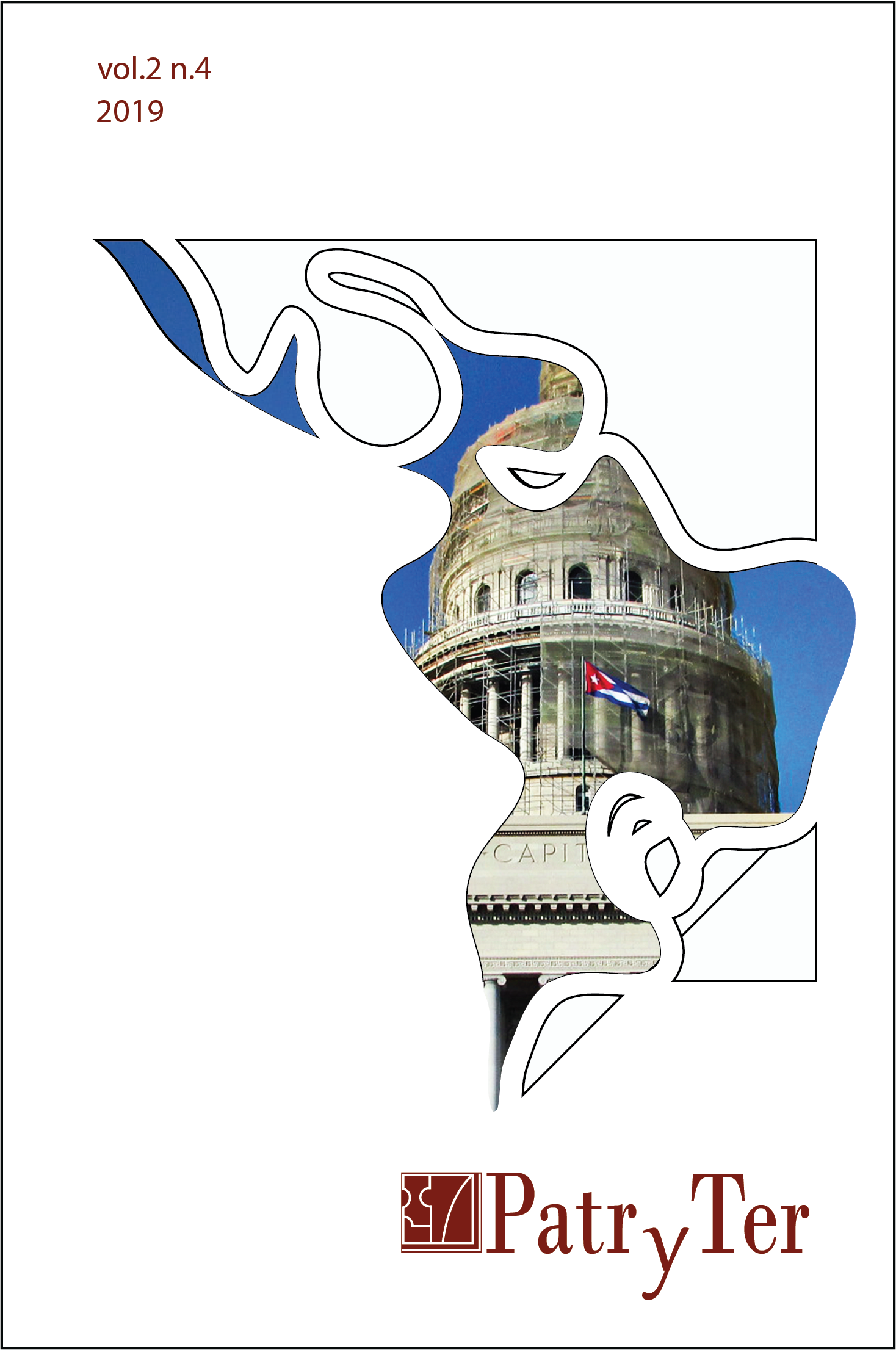La urgencia de una integración popular Latinoamericana: el protagonismo de las ciencias sociales
DOI:
https://doi.org/10.26512/patryter.v2i4.26486Keywords:
América Latina. Caribe. Brasil. Cuba. Editorial. PatryTerAbstract
Tenemos pensado, dicho y escrito: la integración latinoamericana solo puede ser operada delante a la acción conjunta o estrategias que pongan en evidencia la fuerza de los grupos sociales históricamente oprimidos en el continente, o sea, en la escala del sujeto. La resistencia negra, indígena, mestiza, femenina, de grupos subalternizados etc., el lo que puede mantener de pie la utopía integradora social de América Latina, una región diversa desde el punto de vista territorial y cultural. Justamente por ese paradojo (integración y unidad delante de la diversidad y de adversidades) gestado en el origen, nuestro continente es, sin la menor duda, el catalizador de la modernidad mundial, junto a la África y a la Asia, en el contexto de los procesos colonizadores europeos. A través del territorio y sus usos que PatryTer desea denunciar las distintas formas de violencias (en escalas) que nuestros grupos sociales “minorizados” (pues son la mayoría de las gentes) continúan a sufrir, delante del ideal de progreso excluyente y de la modernización conservadora, ambos impuestos por el mundo Occidental (Europa y Estados Unidos, notoriamente).
Downloads
References
Alvarado, I., & Costa, E. (2019). Situación geográfica turística en la era urbana y devenir campo-ciudad en América Latina.Investigaciones Geográficas,0(99). doi: http://dx.doi.org/10.14350/rig.59792
Costa, E. (2016). Utopismos patrimoniais para América Latina. XIV Geocrítica, Barcelona, 2016, 30p. http://www.ub.edu/geocrit/xiv_everaldocosta.pdf
Costa, E. (2018). Proyecto Politico-Academicode la PatryTer -Revista Latinoamericana y Caribeña de Geografía y Humanidades. PatryTer,1(2). https://doi.org/10.26512/patryter.v1i2.12298
Oliveira, R. (2016). De aldeamento jesuítico a periferia metropolitana: Carapicuíba/SP como rugosidade patrimonial. Tese (Doutorado em Geografia). Universidad de Brasília: GEA/UNB.http://repositorio.unb.br/handle/10482/22768?mode=full
Souza, M. (2019). Territorio urbano, rugosidade e patrimonio cultural. PatryTer,2(4). https://doi.org/10.26512/patryter.v2i4.26485
Santos, M. (2007). O espaço do cidadão. São Paulo: EdUSP.
Downloads
Published
How to Cite
Issue
Section
License
Copyright (c) 2019 PatryTer

This work is licensed under a Creative Commons Attribution-NonCommercial-NoDerivatives 4.0 International License.
Please be advised that Revista Patryter is licensed under a Creative Commons Attribution-NonCommercial-NoDerivatives 4.0 International License (CC BY-NC-ND 4.0) https://creativecommons.
Authors who publish in the PatryTer Magazine agree to the following terms:
- Authors retain the copyright and grant the journal the right of first publication, the work being simultaneously licensed under the Creative Commons Attribution License which allows the sharing of the work with recognition of the authorship of the work and initial publication in this journal.
- The contribution is original and unpublished and is not being evaluated for publication by another journal. When submitting the article, authors should attach as a supplementary document a Letter addressed to the PatryTer's Editor, indicating the academic merits of the submitted work (relevance, originality and origin of the article, that is, from what type of research]. This letter must be signed by all authors.
- Authors assign the copyright of the work that they present to the Editorial Board of PatryTer Magazine, which may serve the article in the PatryTer Magazine and in public and private databases in Brazil and abroad.
- Authors declare that they are fully responsible for the entire contents of the contribution that they submit to the Editorial Board of PatryTer Magazine.
- Authors declare that there is no conflict of interest that could interfere in the impartiality of the scientific papers submitted to the PatryTer Magazine Editorial Board.
- Authors are authorized to take additional contracts separately, for non-exclusive distribution of the version of the work published in this journal (eg publish in institutional repository or as a book chapter), with acknowledgment of authorship and initial publication in this journal.
Authors are allowed and encouraged to publish and distribute their work online (eg in institutional repositories or on their personal page) at any point before or during the editorial process, as this can generate productive changes as well as increase the impact and the citation of the published work (See The Effect of Free Access).




